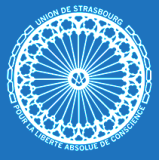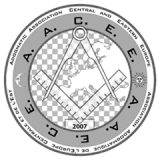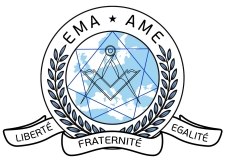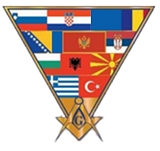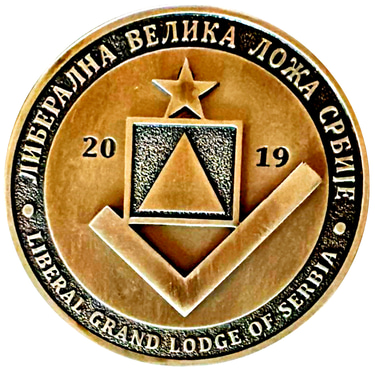International Masonic Organizations
Since 1903, when the first international Masonic organization was founded in Switzerland, the "International Administration of Masonic Affairs" until today, there have been several attempts to organize Masonic obediences on an international level. Given the nature of the Freemasonry institutional organization, where Grand Lodges are organized exclusively on national or state territories, the existence of an international organization, even if it was only a consultative body without any legislative or executive power, has always been a complex project, which in most cases did not last long.
In Europe, with the emergence and development of European integrations that culminated in the creation of the European Union, things have changed significantly, especially when it comes to liberal Freemasonry, and the effort of European Freemasons to connect with regional, European (EU) and world (UN) political bodies, present their opinion and contribute to solving current social issues, which resulted in the creation of several very successful organizations.
C.L.I.P.S.A.S appeared first. (Centre de Liaison et d'Information des Puissances maconniques Signataires de l'Appel de Strasbourg / Center for the exchange of information between the masonic jurisdictions signatories of the Strasbourg Appeal). C.L.I.P.S.A.S. was founded on January 22, 1961, at the initiative of the Grand Orient of France and eleven other male, female, and mixed jurisdictions from Europe, the USA, Latin America, Africa, and Asia. The basis of their organization was a document or "open letter" called the "Strasbourg Appeal" in which the signatories briefly stated the reasons for their organization. Apel says:
STRASBOURG APPEAL
The Sovereign Masonic Jurisdictions gathered in Strasbourg
January 22, 1961 WITH PURPOSE
1. That it is imperative to restore among all Freemasons throughout the world the Fraternal Chain of Universal Freemasonry broken by the lamentable mutual non-recognitions which are irreconcilable with the principles of Anderson's Constitution of 1723;
2. that in this sense it is necessary, taking into account all traditions, rites, religious symbols, and respecting the absolute freedom of conscience, to join efforts in order to establish mutual relations worthy of Masonic values.
AND WITH THAT
that each Lodge and each jurisdiction should be free to decide whether activities should be placed under the protection of the Grand Architect of All Worlds or not, and whether one of the Three Lights should be the Holy Book of one of the religions or not.
WE DECIDE AND DECLARE
to establish fraternal relations among ourselves and to open the doors of our Temples, without conditions of reciprocity, to any male Mason or female Mason who has received the Light in a true and complete Lodge, provided that the Masonic specificity of the Lodge or Jurisdiction allows these visits.
WE APPEAL TO YOU
to all Masons to join the Fraternal Chain of Universal Freemasonry on the basis of total freedom of conscience and complete mutual tolerance.
Members of C.L.I.P.S.A.S. believe that it is necessary to study the problems and issues that are common to all social communities and that determine the future of the people of different countries and cultures. For this purpose, annual conferences are held where issues of importance for the modern world are discussed. These conferences allow members to present their views and the results of discussions held throughout the year in their Lodges. The conclusions of these conferences are then presented in the form of a final document with proposals for actions on given issues to international bodies such as ECOSOC (United Nations Economic and Social Council) for further consideration. C.L.I.P.S.A.S. has permanent representatives at ECOSOC in New York, Geneva, and Vienna.
Currently, C.L.I.P.S.A.S. has in its membership over 100 Masonic Jurisdictions from all continents of the world. By joining C.L.I.P.S.A.S. all member Jurisdictions join and adopt the principles of the Appeal from Strasbourg, signed at the time of its establishment on January 22, 1961. The Liberal Grand Lodge of Serbia is the first full member of C.L.I.P.S.A.S from Serbia.
Another significant Masonic international organization is the European Masonic Alliance (A.M.E. / E.M.A. - Alliance Maçonnique Européenne) based in Brussels. The European Masonic Alliance, as a community of 35 European liberal Jurisdictions, mainly from the member states of the European Union, aims to spread and promote the values and principles of Freemasonry, with special emphasis on freedom of conscience, the ideals of democracy, fraternity and human dignity. EMA rejects any form of discrimination and any form of violation of freedom of expression. These principles and values otherwise form the basis for the creation of the European Union.
In this context, European liberal obediences have established an alliance that represents European Freemasonry in European dialogues with European institutions and, in the broadest context, European countries. They declare their legitimacy to communicate with the authorities of the European Union and all European citizens.
This does not mean taking a political position, but defending the values of liberal European adogmatic obediences. Accordingly, the EMA (AME) is included in the Transparency Register of the European Commission and has several meetings a year with the President or Vice-President of the European Commission, as well as meetings with representatives of the European Parliament and Members of Parliament.
At these conferences, representatives of liberal Masonic jurisdictions present their views on various current social issues in the European Union, as well as proposals for their resolution. The topics presented so far cover a wide range of social issues such as health care, the environment, human rights, equality, the future of the EU, etc.
Next on the list of international Masonic organizations is the A.A.C.E.E. (Adogmatic Association of Central and Eastern Europe), "Adogmatic Association of Central and Eastern Europe" or more clearly the Association of Masonic Liberal and Adogmatic Jurisdictions from Central and Eastern Europe. The activities of AACEE are related to the project of European construction and enlargement, and to the European Union as such, with special attention to the reconstruction of Freemasonry and democracy in the countries of Central and Eastern Europe.
AACEE aims to bring together the liberal Masonic jurisdictions of Central and Eastern Europe in order to promote the values of democracy, support, solidarity, and cohesion of the countries of Central and Eastern Europe within the European Union.
In the spirit of the declaration of April 22, 2001, in Budapest, AACEE stands for the promotion and protection of human values in order to restore and advance the social, economic, cultural, or humanitarian development of the countries of Central and Eastern Europe. For this purpose, AACEE brings together all liberal Masonic obediences from Central and Eastern Europe that respect the same values and are willing to participate in a common mission.
The existence of this regional community of Masonic jurisdictions is explained by the special attention that these countries require when it comes to the traditions of democratic institutions and human rights if we take into account the historical circumstances that existed in these countries during the 20th century.
In addition to this, there are two other regional Masonic organizations in Europe. One is the "Masonic Union of the Mediterranean" (L'Union Maconnikue de la Mediterranee) created in 2000, to strengthen the community of Mediterranean Masons, based on the common Mediterranean tradition, which was translated into Masonic practice. Common roots brought together freemasons from Spain, Greece, France, Lebanon, Morocco, Romania, Bulgaria, Italy, Turkey, Portugal, Slovenia, Montenegro and Croatia.
The vision of the Union is open and modern Freemasonry, which includes not only old Europe, but also Africa and the Middle East. Only such Freemasonry can promote dialogue in the best way and ensure a future of tolerance, respect, and help for those who suffer today due to wars, fanaticism, and other forms of deprivation of individual freedom.
Another regional organization is the "Masonic Union of the Balkans" (M.U.B.) founded in 2014 by the Grand Mixed Lodge of Greece of the International Masonic Order "DELFI" and the Grand Liberal Lodge of Turkey with the following goals:
1. protection and development of culture and initial history on the Balkan Peninsula,
2. spread of liberal freemasonry inspired by the Balkans,
3. study of modern initiation and functional problems of freemasonry relevant for each member country.
The Union achieves these goals both through the work of its members and through regular conferences on common topics. It is the duty of the Union to defend and support the Masonic identity of the Union's Member Jurisdictions, with a deep understanding that the universality and equality of Freemasonry derives from knowledge, respect, and cultural diversity.
The members of the Masonic Union of the Balkans are: the International Masonic Order of Delphi, the Liberal Grand Lodge of Turkey, the Grand Albanian Lodge "Illyria", Grand Universal Lodge of Bulgaria, REgular Grand Lodge of Montenegro, United National Grand Lodge of Romania, Grand Orient of Romania, Grand Orient of Slovenia, Grand Orient of France (for their Lodges in the Balkans), Women's Grand Lodge of France (for their Lodges in the Balkans), the Grand Women's Lodge of Greece, the Grand National Lodge of Croatia, the Grand Women's Lodge of Romania, and the Liberal Grand Lodge of Serbia.
The existence and activities of these international and regional Masonic organizations of Freemasons significantly increase the visibility of the Member Jurisdictions, both at the national, regional and European levels. According to the old natural rule "Together we are stronger" - these fellowships allow freemasons to have their voice heard in important decision-making centers at different levels, where they make a positive contribution to solving many pressing social issues.
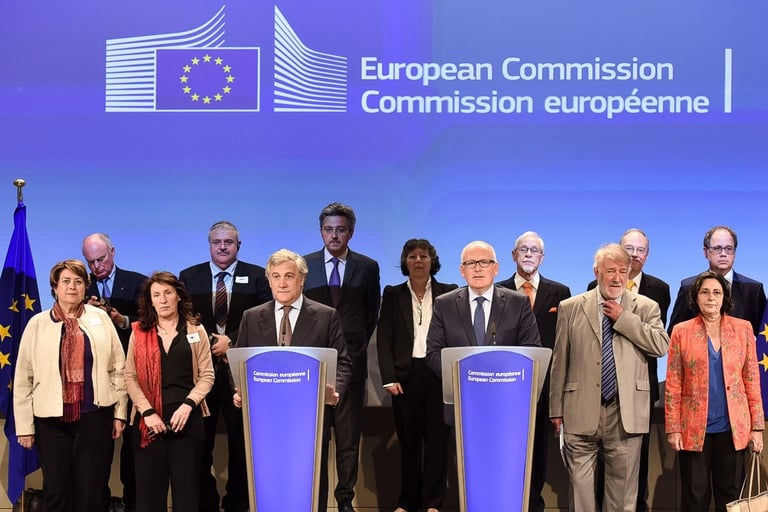

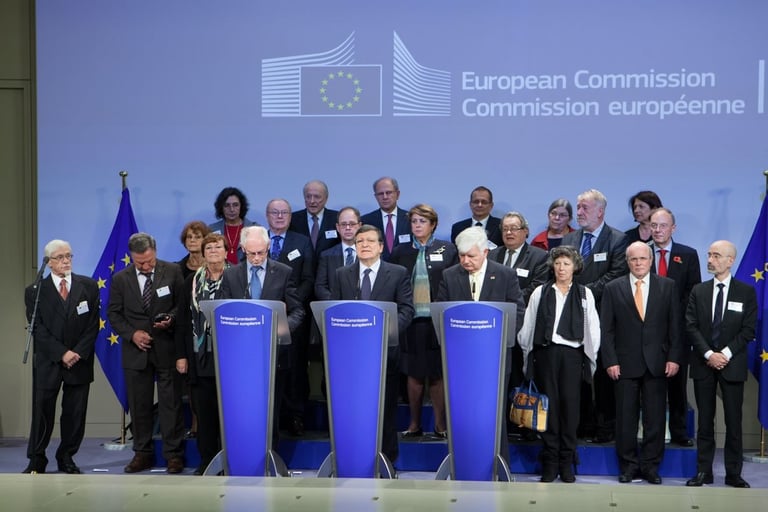

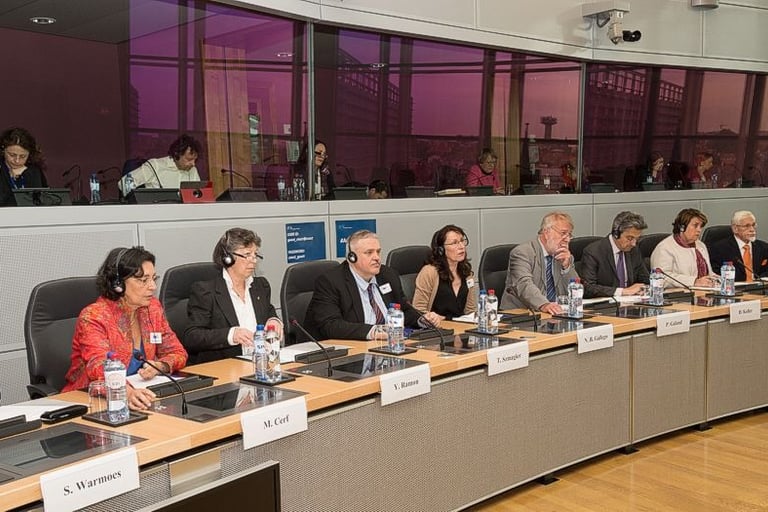

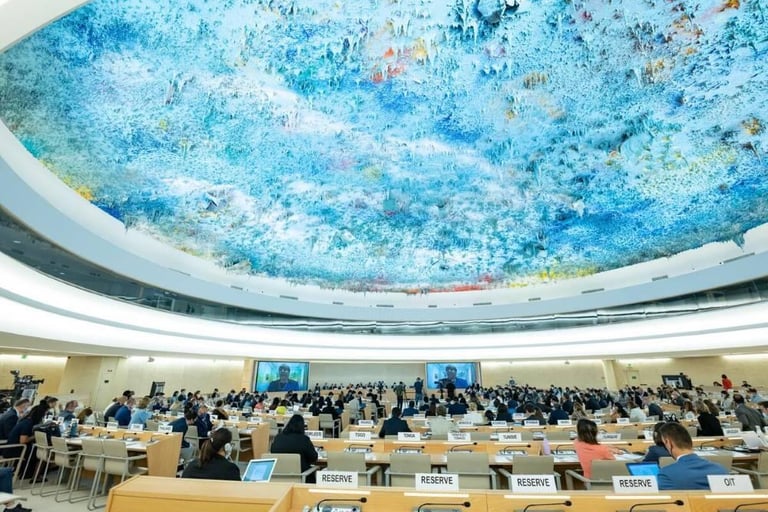

Regular annual conferences of European Freemasons with the President and Vice President of the European Commission and representatives of the European Parliament.
C.L.I.P.S.A.S. has permanent representatives at ECOSOC in New York, Geneva, and Vienna
Connect
office@lvls.org.rs
Liberal Grand Lodge of Serbia - All rights reserved 2023
Subscribe to our newsletter
sekretarijat@lvls.org.rs
